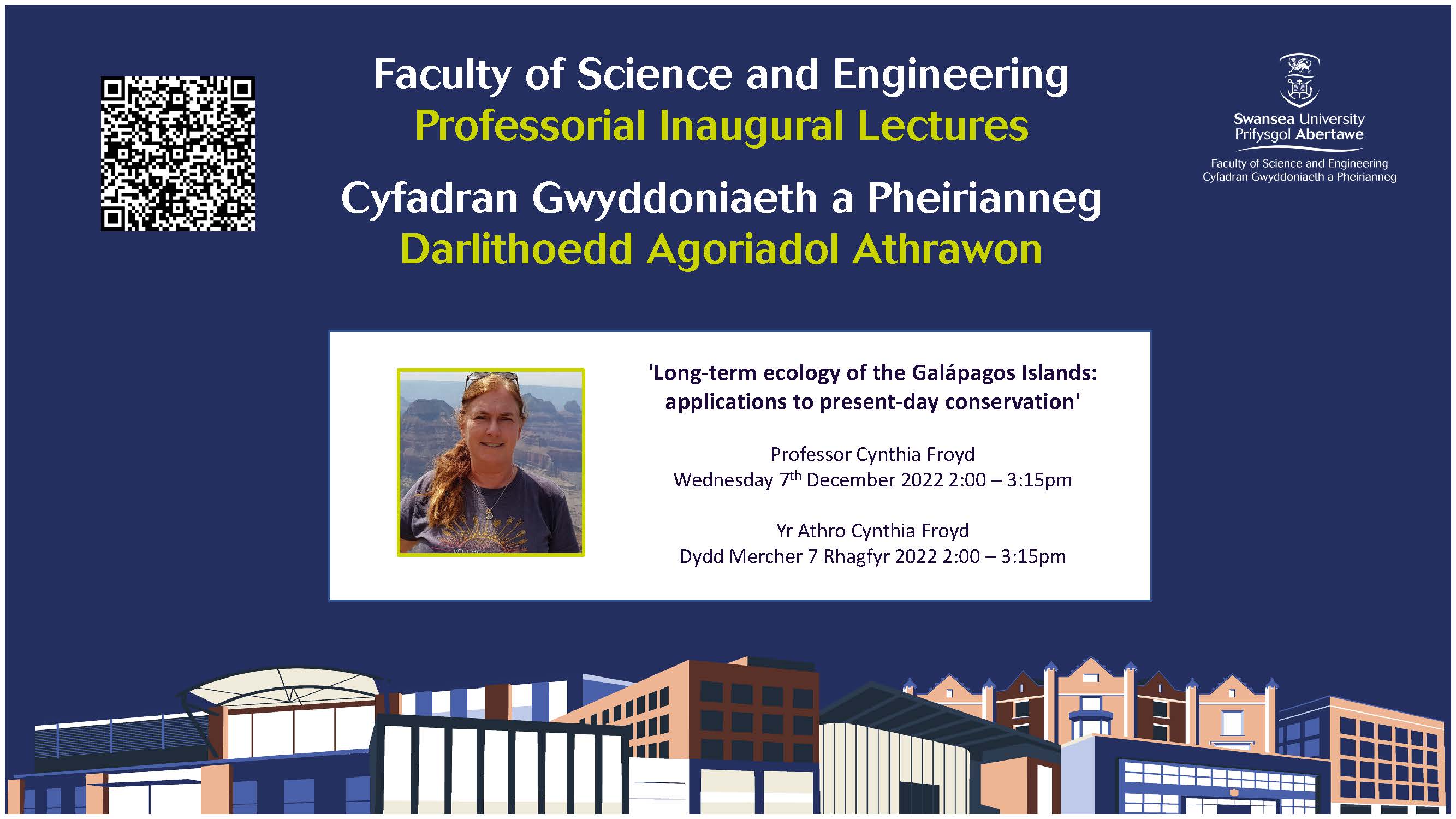
Registration is required
Register at: https://www.eventbrite.com/e/fse-professorial-inaugural-lectures-professor-cynthia-froyd-tickets-425048400207
SpeakerProfessor Cynthia Froyd
Speaker's BiographyCindy earned her BSc in Forest Resources Sciences from Humboldt State University (USA) and MSc in Forest Ecology from Oregon State University (USA), then going on to work as an Ecologist for the US Forest Service for 13 years. It was in her role with the Forest Service, examining the ecology and management of long-lived forested ecosystems in the Pacific Northwest, that she began to realise the need for a longer-term ecological perspective in conservation design. This inspired her to pursue a PhD in Quaternary Palaeoecology in the Department of Plant Sciences, University of Cambridge, focussing on the long-term ecology of native Scottish pinewoods. She followed this with a postdoc at the University of Oxford, Centre for the Environment, and a stipendiary lectureship at St Catherine’s College, Oxford. It was at this time that she shifted her research focus to (much warmer!) tropical island ecosystems, working in the Galápagos Islands and Mauritius. Cindy has been in the Department of Biosciences in Swansea since 2015.
From: 7 Dec 2022, 2 p.m.To: 7 Dec 2022, 3:15 p.m.
Location: Wallace Lecture Theatre, Wallace Building, Swansea University
In celebration of the Faculty of Science and Engineering’s newly promoted Professors, we would like to cordially invite you to join us for the inaugural lecture of Professor Cynthia Froyd at 2pm, Wednesday 7th December 2022 in the Wallace Lecture Theatre, Singleton Campus.
An Inaugural Lecture is a significant milestone in an academic staff member’s career and a fantastic opportunity for our Professors to showcase their achievements in research, teaching, innovation, and engagement.
All staff and students are welcome to attend the lecture.
Professor Cynthia Froyd will deliver a lecture entitled:
‘Long-term ecology of the Galápagos Islands: applications to present-day conservation’
The Galápagos Islands are renowned both for their ecological value and as a world symbol of scientific discovery. This unique habitat is a global conservation priority, providing one of the last remaining options for the conservation of a relatively intact archipelago biota. The design of effective conservation and ecological restoration programmes requires an understanding of the processes underlying the development of present-day ecosystems and biodiversity. In this talk I will discuss how we used palaeoecological research techniques to examine long-term plant community dynamics, human impact and environmental change over the last 6000 years in the Galápagos Islands and how this information may be used to help guide conservation. I will also describe on-going work examining human impact and biodiversity changes on island systems world-wide and how the Galápagos, with its uniquely short duration of human presence, compares with trajectories of change at the global scale.
Contact: Kelly Bevan (Email: k.a.bevan@Swansea.ac.uk)
Event created by: k.a.bevan
